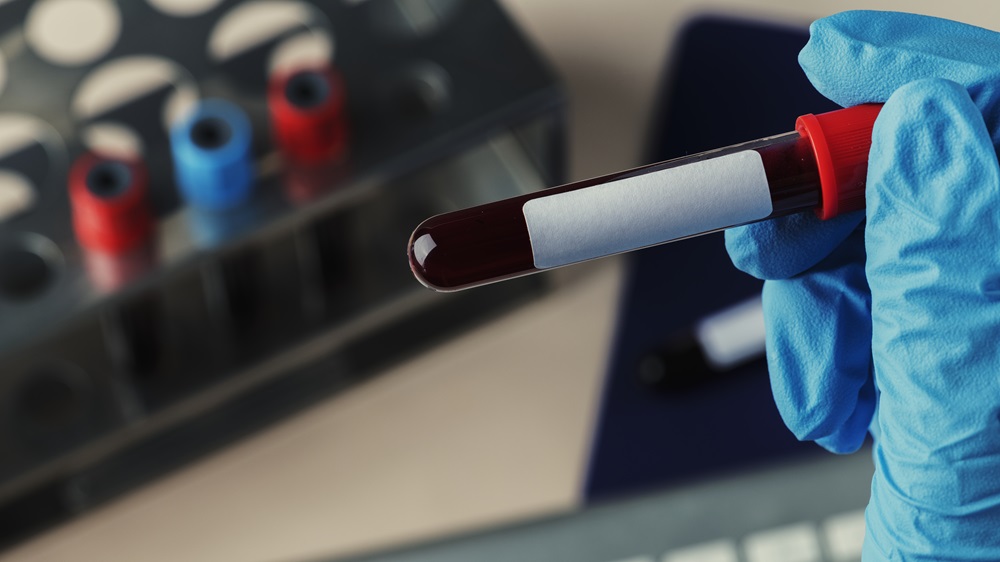You push your limits every day. Late nights, early mornings, constant pressure, and endless deadlines define your routine. But when was the last time you checked what’s happening inside your body?
Finding a reliable laboratory for blood work that can run comprehensive panels isn’t just smart—it’s essential for anyone serious about sustaining peak performance.
Most professionals get basic blood work done during annual checkups, but that’s like checking your car’s oil and ignoring the engine.
Your body gives you subtle warnings long before you hit the wall, and advanced blood markers can catch these signals early.
The Real Cost of Ignoring Your Internal Health
High achievers often treat their bodies like machines that should run indefinitely without maintenance.
This mindset costs more than you think. Chronic stress elevates cortisol levels by 23% on average, according to research from Harvard Medical School.
This single hormone imbalance can trigger a cascade of health issues that destroy your competitive edge.
When you ignore these early warning signs, you’re gambling with your most valuable asset—your ability to perform.
The executives who stay sharp into their 60s and beyond aren’t just lucky. They monitor their health metrics like they monitor their business KPIs.
Core Markers That Actually Matter
Hormonal Balance Indicators
Your hormones control everything from energy levels to decision-making capacity. Testosterone levels in men drop 1-2% annually after age 30, while cortisol patterns reveal how well you handle stress.
Women need to track estradiol and progesterone ratios, especially if they’re managing career demands alongside family responsibilities.
Thyroid function markers (TSH, T3, T4, reverse T3) deserve special attention. Even slight thyroid dysfunction can make you feel like you’re running through mud, yet many doctors only test TSH—which misses 60% of thyroid issues.
Metabolic Health Tracking
Standard glucose tests only show snapshots. HbA1c reveals your average blood sugar over three months, giving you the real story about how your body processes stress, caffeine, and irregular eating patterns.
Insulin levels matter even more—they predict metabolic problems years before diabetes develops.
Inflammation markers like CRP and IL-6 tell you if your immune system is fighting chronic battles you can’t see.
Professionals with CRP levels above 3.0 mg/L face significantly higher risks of cardiovascular events, even with normal cholesterol.
Nutrient Status Assessment
Executive lifestyles create specific deficiencies. Vitamin D levels below 30 ng/mL affect 75% of office workers, leading to fatigue, mood issues, and weakened immunity.
B12 deficiency shows up in 15% of high-performers, often masked by caffeine dependency.
Magnesium deficiency affects 68% of adults but rarely gets tested. This mineral controls over 300 enzymatic reactions, including those that regulate stress response and sleep quality.
Low magnesium explains why some people can’t relax even when exhausted.
Advanced Cardiovascular Risk Assessment
Traditional cholesterol panels miss the real threats. Particle size analysis reveals whether your LDL cholesterol consists of large, fluffy particles (relatively harmless) or small, dense particles (significantly more dangerous).
Two people with identical total cholesterol can have completely different heart attack risks.
Lipoprotein(a) testing identifies genetic cardiovascular risks that diet and exercise can’t fix. About 20% of the population carries this genetic marker, which increases heart attack risk by 70% regardless of other factors.
| Marker | Optimal Range | Risk Level |
| CRP | <1.0 mg/L | Low inflammatory risk |
| Lipoprotein(a) | <30 mg/dL | Low genetic risk |
| HbA1c | <5.4% | Excellent metabolic health |
| Vitamin D | 40-60 ng/mL | Optimal immune function |
Stress and Recovery Indicators
Cortisol awakening response testing measures how your stress system functions throughout the day. Healthy people show a 50-75% cortisol spike within 30 minutes of waking, followed by steady decline. Disrupted patterns indicate adrenal dysfunction—common in high-stress careers.
DHEA-S levels complement cortisol testing. This hormone counterbalances stress effects, but production declines 2% annually after age 25. Low DHEA-S relative to cortisol suggests your recovery mechanisms are failing.
Sleep Quality Biomarkers
Melatonin metabolite testing reveals whether you’re actually getting restorative sleep. Many professionals think they sleep well but show disrupted melatonin patterns, explaining why they wake up tired despite spending eight hours in bed.
Cognitive Performance Markers
Homocysteine levels above 10 μmol/L predict cognitive decline and memory problems. This amino acid increases when B vitamins run low—common in people who rely on stimulants and skip meals. Elevated homocysteine also triples stroke risk.
Omega-3 fatty acid profiles directly impact brain function. The Omega-3 Index should stay above 8% for optimal cognitive performance, yet most professionals test below 4%. This deficiency impairs focus, memory, and emotional regulation.
Making Testing Actionable
Getting tests is easy—interpreting results and taking action requires strategy.
Work with providers who understand performance optimization, not just disease treatment. Many “normal” reference ranges accept suboptimal function as acceptable.
Test timing matters enormously. Cortisol should be measured at awakening, noon, evening, and bedtime. Testosterone peaks in the morning. Thyroid markers need consistent timing since they fluctuate throughout the day.
Create a testing schedule that tracks trends rather than isolated snapshots. Quarterly comprehensive panels catch changes before they impact performance. Annual testing misses too much in fast-moving, high-stress careers.
Your career demands peak performance, but sustainable success requires treating your body like the high-performance machine it is.
Advanced blood work gives you the data to optimize your internal systems before problems emerge.
The best laboratory for blood work becomes your early warning system, helping you maintain your competitive edge for decades, not just years.
Smart professionals don’t wait for symptoms. They monitor, adjust, and optimize continuously—because in today’s competitive landscape, feeling “good enough” isn’t enough.

Frequently Asked Questions
Why isn’t standard annual blood work enough for professionals?
Answer: Standard panels only cover basics like glucose and cholesterol. They miss early warning signs in hormones, inflammation, nutrient levels, and cardiovascular risks that directly impact performance. Advanced blood work uncovers these hidden issues before they become serious.
Which blood markers are most important for high-performing executives?
Answer: Key categories include:
- Hormonal balance (testosterone, cortisol, thyroid)
- Metabolic health (HbA1c, insulin, CRP)
- Nutrient status (Vitamin D, B12, magnesium)
- Cardiovascular risk (particle size analysis, Lipoprotein(a))
- Stress & recovery (cortisol rhythm, DHEA-S)
- Cognitive performance (homocysteine, Omega-3 index)
How often should I get advanced blood testing done?
Answer: Quarterly panels are best for high-stress, fast-paced careers because they catch changes early. Annual testing often misses crucial trends that develop in just a few months.
Why is cortisol testing throughout the day so important?
Answer: A healthy cortisol rhythm shows a sharp spike after waking, then gradual decline. Disrupted patterns signal adrenal fatigue and poor stress recovery—common in professionals under constant pressure.
Can nutrient deficiencies really affect performance even if I eat well?
Answer: Yes. Over 75% of office workers have low Vitamin D, 15% show B12 deficiency, and 68% are magnesium deficient. These deficiencies directly impact energy, focus, mood, and immunity.
What’s the benefit of testing Lipoprotein(a) if my cholesterol looks normal?
Answer: Lipoprotein(a) is a genetic risk marker that diet and exercise can’t fix. About 1 in 5 people have elevated levels, which increases heart attack risk by 70%—even if cholesterol numbers look fine.
How do I know if a lab is truly “reliable” for advanced blood work?
Answer: Look for labs that offer comprehensive panels (not just basics), precise timing (morning testosterone, 4-point cortisol), and providers who interpret results for optimization—not just disease management.
What’s the difference between “normal” and “optimal” ranges in lab results?
Answer: “Normal” ranges are population averages, including people with poor health. “Optimal” ranges show where your body performs best for energy, focus, and long-term resilience. For example, Vitamin D may be “normal” at 20 ng/mL, but optimal function happens between 40–60 ng/mL.
How do I make testing results actionable instead of just numbers?
Answer: Work with providers who build performance-based health strategies—adjusting lifestyle, nutrition, recovery, and supplements. Testing should track trends and fuel ongoing adjustments, not just confirm you’re “okay.”
What’s the biggest mistake professionals make with blood testing?
Answer: Treating it as a one-time event. The value comes from consistent monitoring, interpreting trends, and implementing changes—just like tracking business KPIs.


